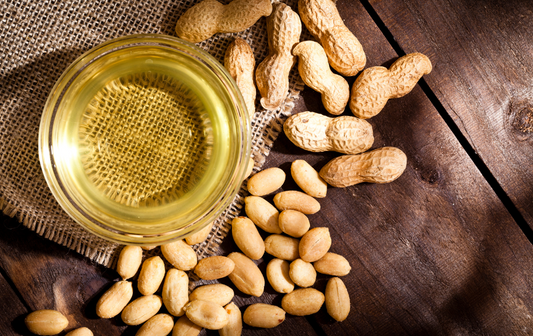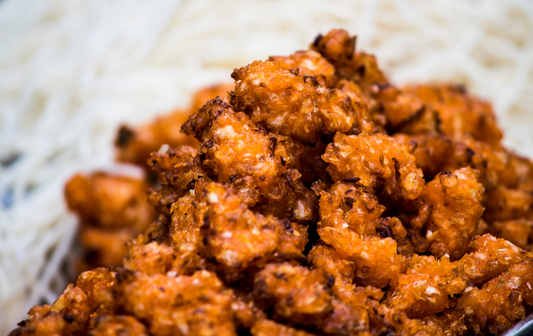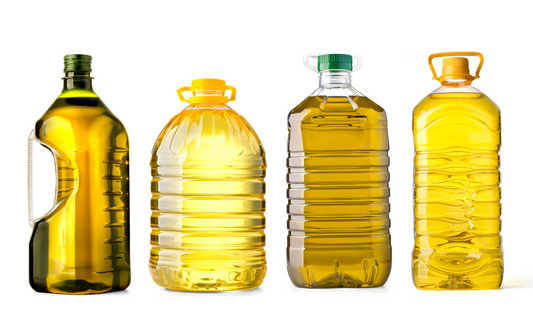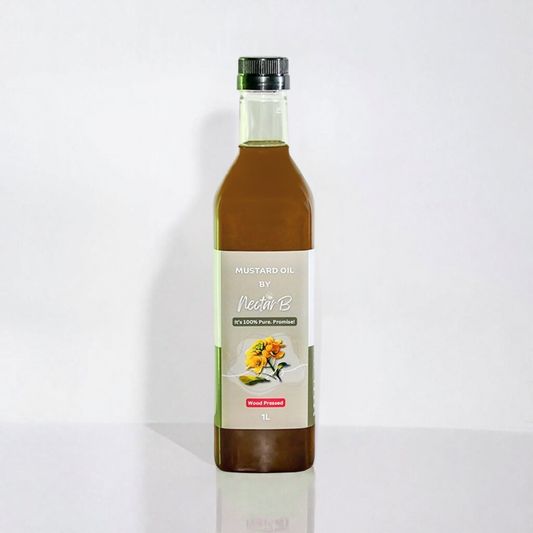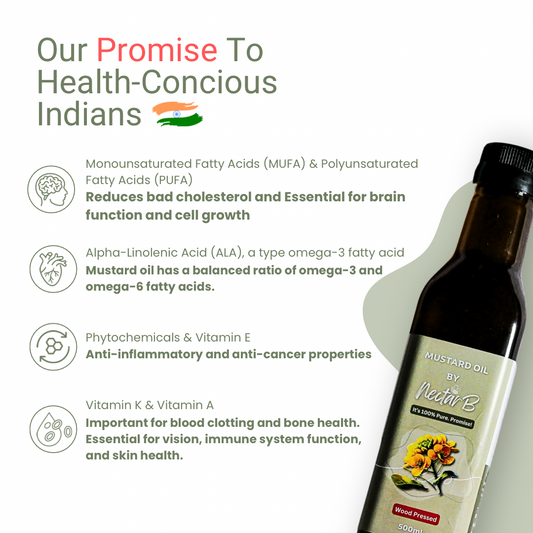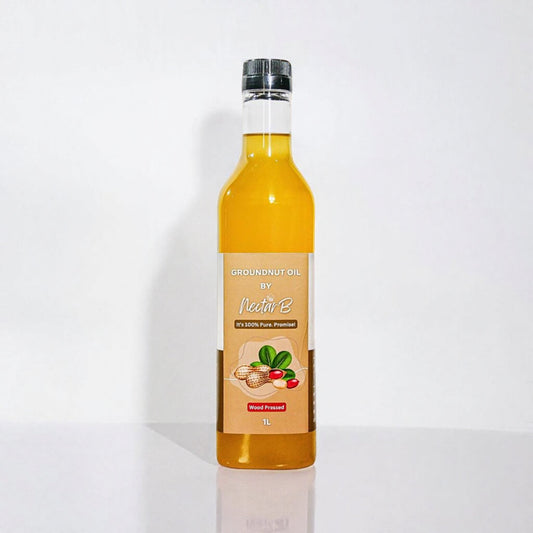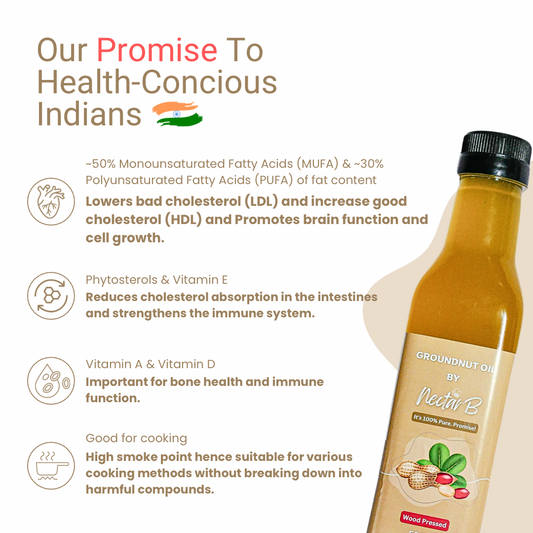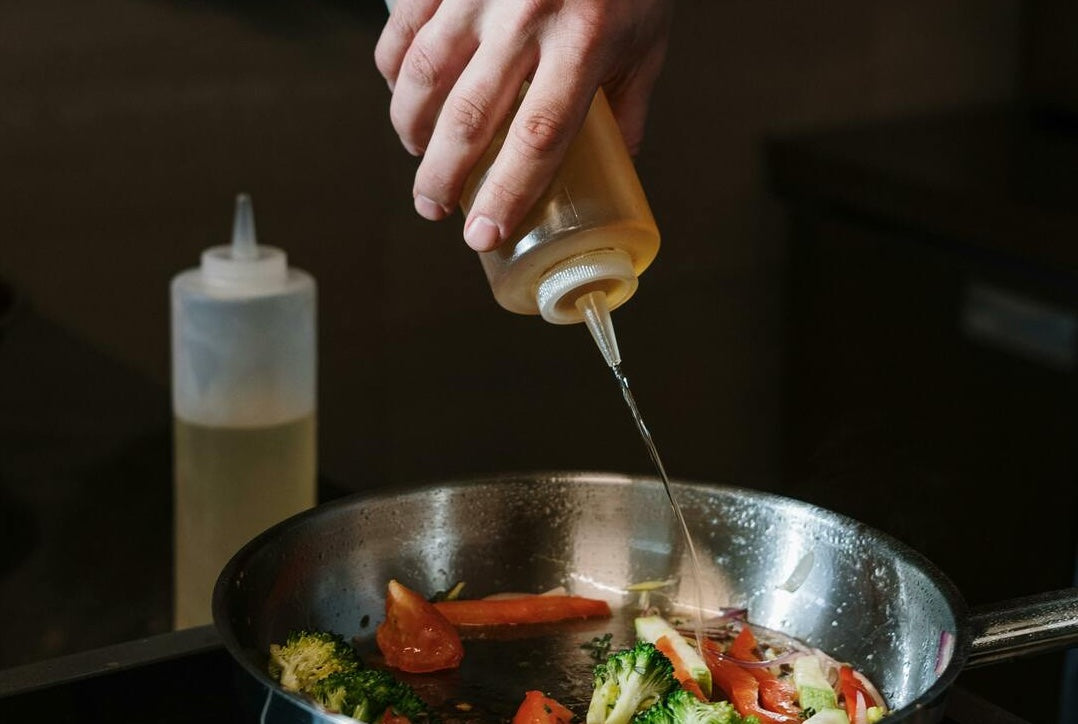
Which oil is best for cooking?
Cooking oils are a core part of our everyday food, so why not start addressing the daily nutrient needs from here itself? We'll do it by asking a few general questions and then answering them.
Do we get nutrients from cooking oil?
Yes, cooking oils are rich sources of nutrients. For example :
- Groundnut oil contains α, β and δ tocopherols and resveratrol a phytoalexin, which is an anti-cancer agent, a platelet anti-aggregation agent, and an anti-oxidant.
- Sunflower oil contains MUFA (Monounsaturated fatty acid), PUFA (Polyunsaturated fatty acid) and α-tocopherol.
- Safflower oil contains the highest linoleic acid (PUFA) and α-tocopherol.
- Mustard oil is rich in Vitamin B Complex, Vitamin A, Vitamin E, calcium, protein, and omega-3 fatty acids.
- And many more...
What cooking oil should we use for our daily cooking?
No one oil contains all the nutrients in general. So, consuming one type of oil for life keeps you far from the other nutritional values. It is suggested to rotate between different edible oils every few days.
What is the difference between Refined Oil, Hot Pressed Oil, Cold Pressed Oil, and Wood Pressed oil?
Refined oil is made using multiple chemical processes, due to which the amount of trans-fatty acid is elevated, which is bad for health. It is well known to lower good HDL cholesterol and raise levels of insulin, triglycerides, and harmful LDL cholesterol. Trans fats can also lead to, cancer, diabetes and immune system problems.
Hot Pressed oils are manufactured by bringing the seed to a certain temperature, different for different seeds. Which puts the oil in their Smoke Point leading to a loss of the nutritional properties of the oil.
Cold Pressed oils are manufactured by pressing the seeds with metal chekku against a metal wall. It sometimes increases the temperature but never reaches to the smoke point of the seed. It retains its nutritional properties to a good extent.
Wood Pressed Oils are cold-pressed oils, which are manufactured by pressing wooden chekku against stone, resulting in maximum retention of nutrition.
Do we lose nutrients while filtering the oil as well?
Yes, there are multiple filtration methods that different manufacturers use. Some use chemical-based filtration as in refined oils, Some use Vacuum-based machines, and some use the Natural-Settlement process.
Natural-settlement is a great way to filter oils, where the extracted oil is left for a few days or weeks and allows the impurities to settle down naturally. It doesn't harm the nutrition of the oil.
What are some cooking oils suggested for health benefits?
- Groundnut Oil - Groundnut oil acts as an antioxidant, it has anti-cancer, and anti-diabetic properties, and it helps in protecting the heart.
- Safflower Oil - It has lower cholesterol and is rich in unsaturated fatty acids. It may also help in blood sugar control and better heart health.
- Sunflower Oil - It contains a mix of MUFA and PUFA, is rich in Vitamin E, offers zero cholesterol, and is the source of omega-6 fatty acids.
- Mustard Oil - It is low in Saturated Fatty acid and high in MUFA and PUFA. It helps in reducing cholesterol and improves the membrane structure of the Red Blood Cell. It acts as an immunity booster and also reduces diabetic hazards.




